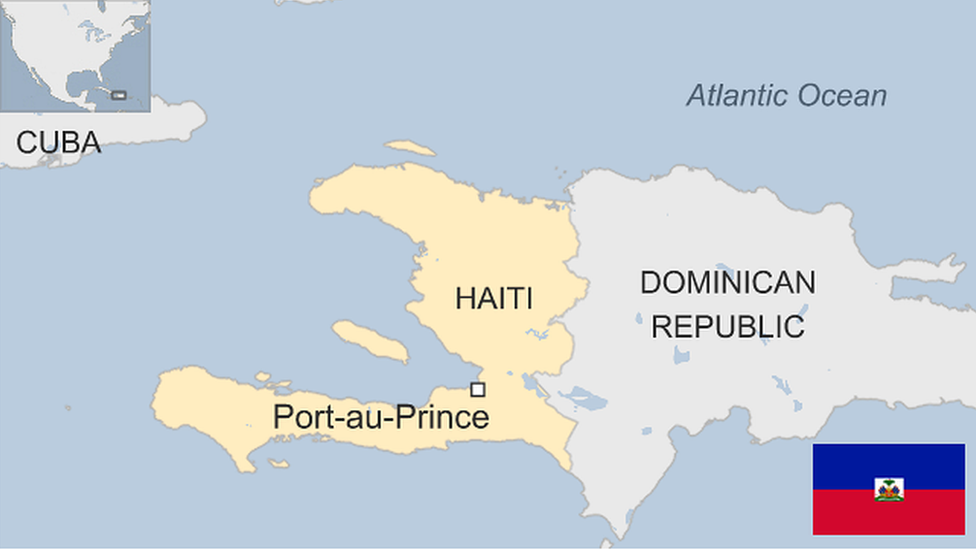Why Haiti is going to the polls again
- Published
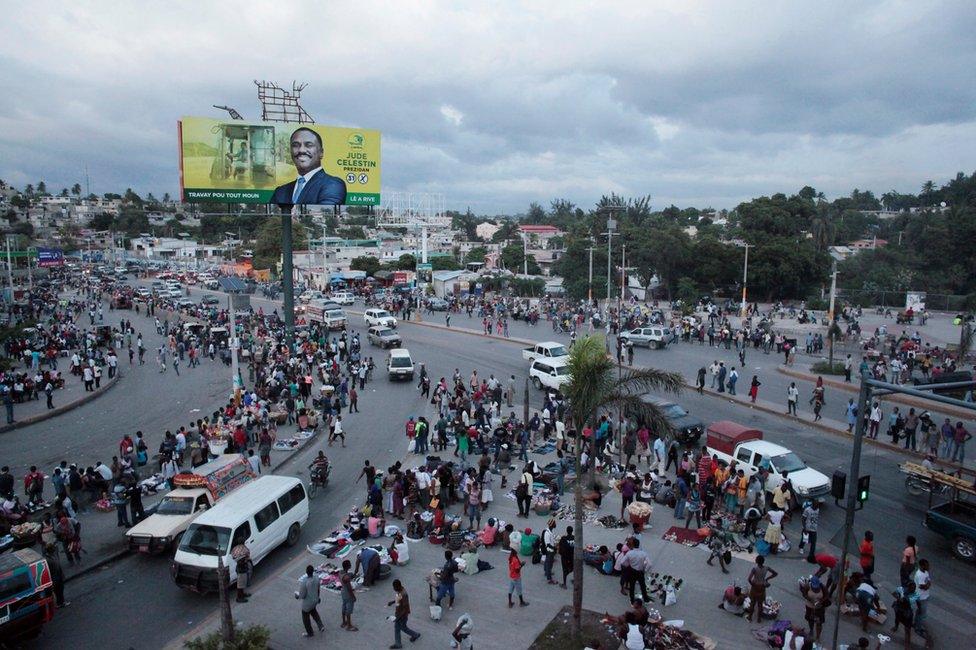
Jude Celestin (on poster) is running again after rejecting last year's result
Haiti, the poorest country in the Americas, is holding much-anticipated presidential and parliamentary polls on 20 November.
They come more than a year after a first attempt to hold the presidential ballot ended without a run-off round
Why so late?
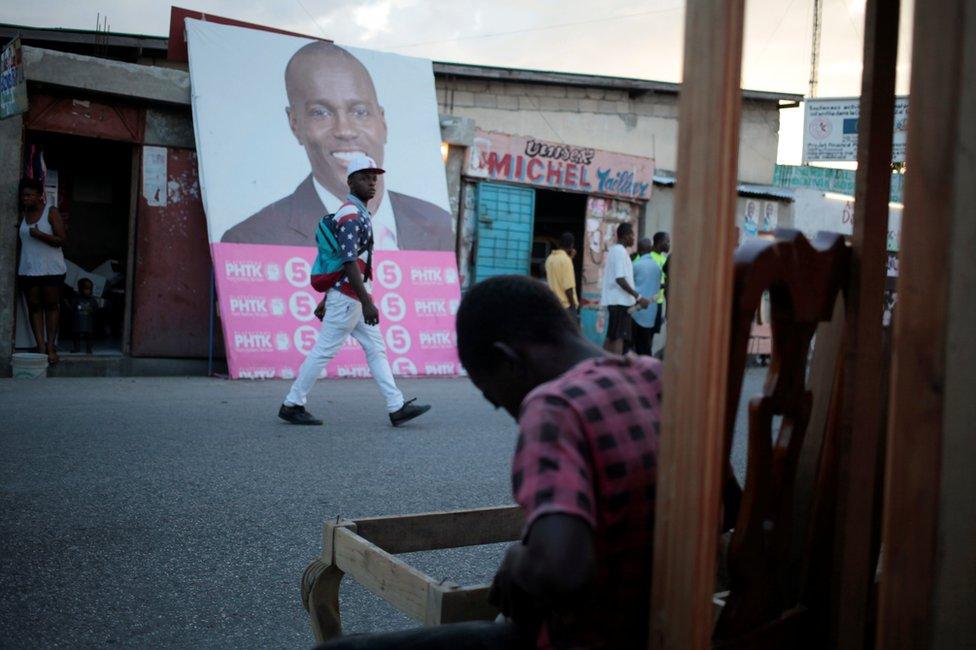
Jovenel Moise came first in last year's election, which was annulled
The October 2015 presidential election was won by Jovenel Moise but opposition challenger Jude Celestin called foul and, after violent unrest, the ballot was annulled and a new election called.
It should have been held this 9 October but was postponed after Hurricane Matthew devastated parts of the country.
A second round is due in January if no candidate wins more than 50% of the vote.
Also on Sunday, Haitians will vote in the second round of parliamentary elections - the first was held in August of last year.
Who's standing?
Jocelerme Privert was named as interim president by parliament in February 2016 to fill the power vacuum after the incumbent, Michel Martelly, stepped down at the end of his term.
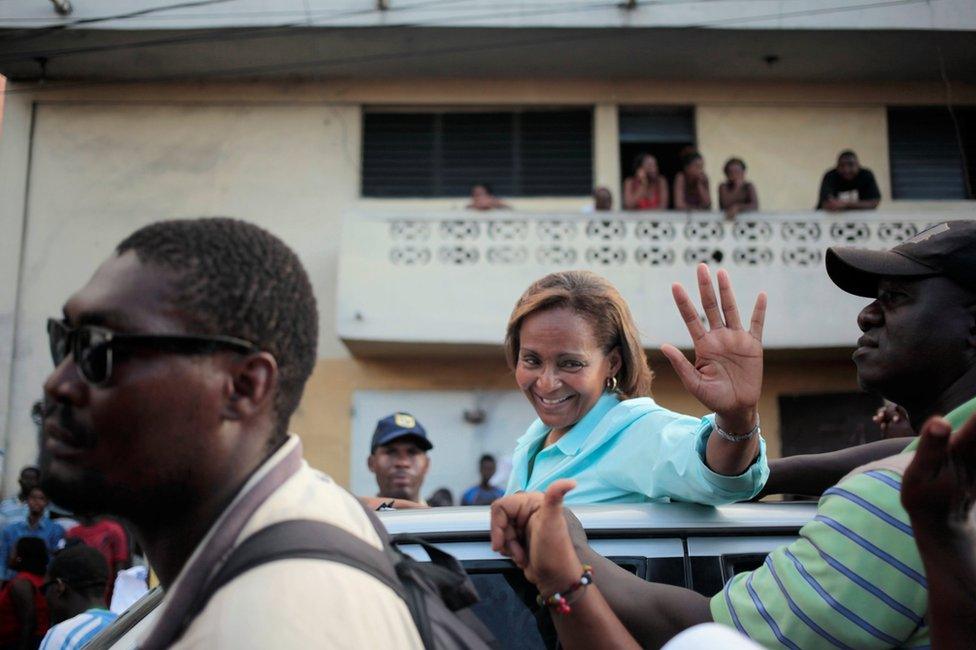
Maryse Narcisse is backed by Jean-Bertrand Aristide, Haiti's first democratically elected president
Standing this weekend are:
Banana exporter Jovenel Moise, from the centre-right Haitian Tet Kale Party, who has the support of Mr Martelly and won the first round last year with almost 32% of the vote
Jude Celestin, from the Alternative League for Haitian Progress and Emancipation, who came second last year with 25% and is backed by a coalition of parties
Jean-Charles Moise, who is running for the progressive Platform Pitit Dessalin, and came third in 2015 with 14% of the vote
Maryse Narcisse, from the left-wing Fanmi Lavalas party, who came fourth in last year's election and is backed by Jean-Bertrand Aristide, Haiti's first democratically elected president
Jean-Henri Ceant of the Remen Ayiti party and Edmonde Supplice Beauzile of the Fusion Party of Haitian Social Democrats
What challenges does the winner face?
The most pressing issue is the continuing humanitarian crisis which began with the 2010 earthquake. The United Nations has said it is struggling to assist Haiti because of insufficient foreign aid.
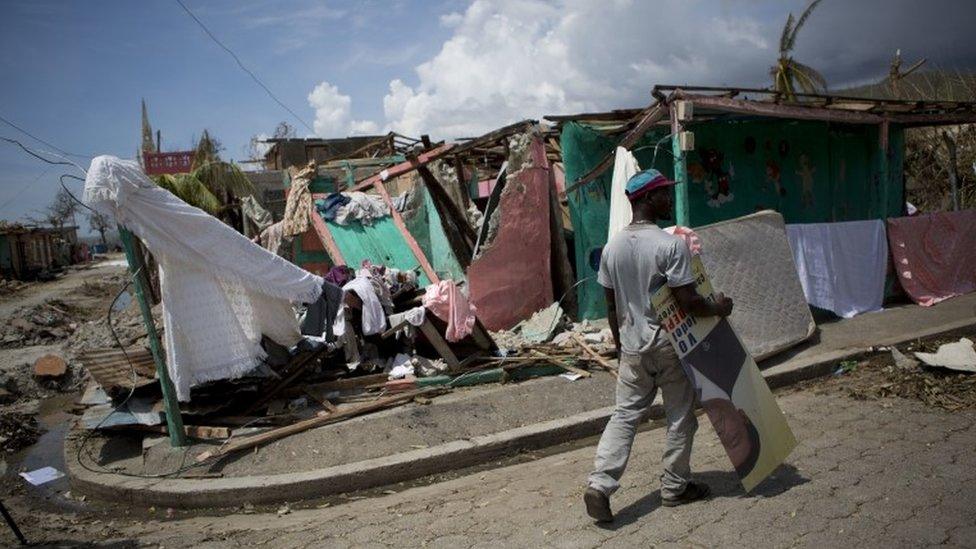
Haiti is much more vulnerable to natural disasters than other countries in the region
Almost seven years after the 2010 earthquake, about 1.5m victims still live in temporary shelter while cholera has caused nearly 10,000 deaths.
Massive deforestation has led to crops being washed away and many homes being destroyed by natural disasters.
Political instability and corruption have also contributed to rampant poverty.
Without effective government for decades, Haiti ranks 163rd out of the 188 countries on the UN Human Development Index.
- Published14 October 2016
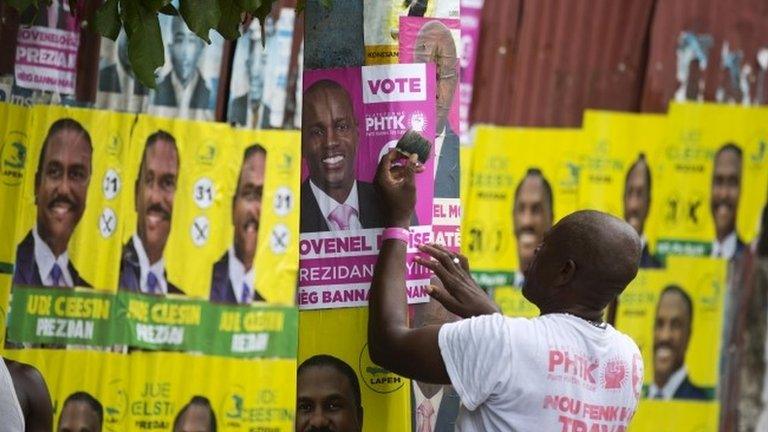
- Published6 October 2016
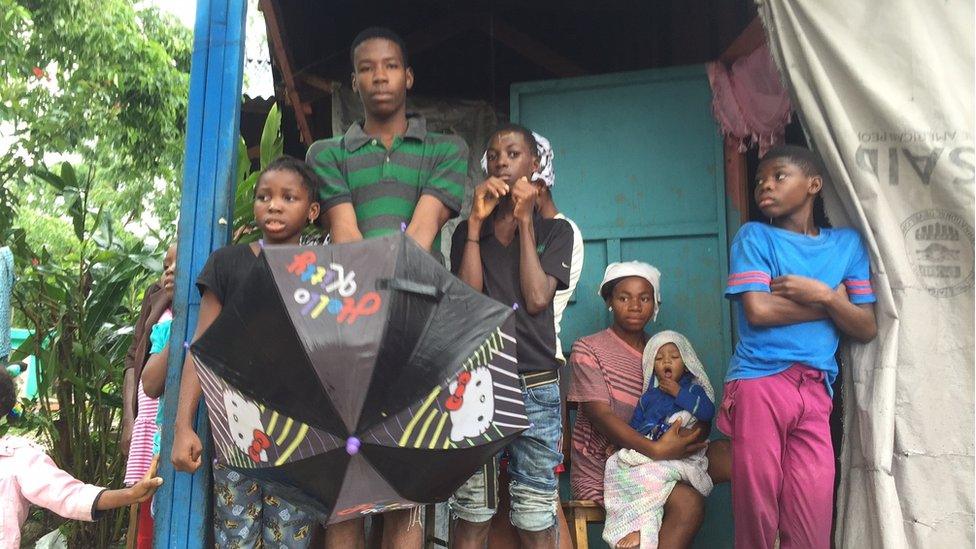
- Published4 January 2016
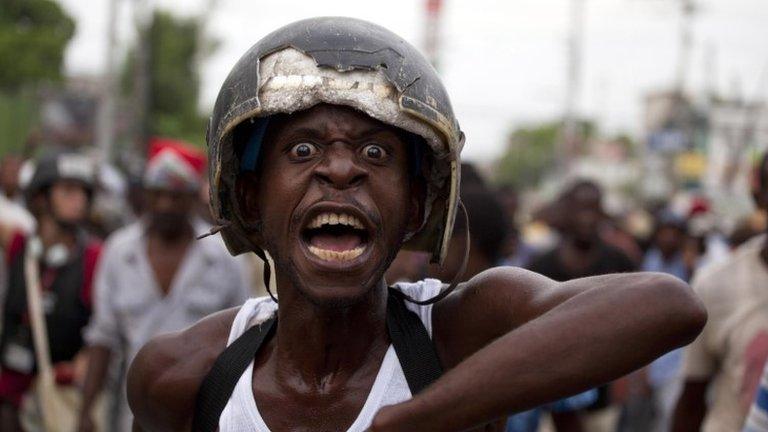
- Published21 May 2024
